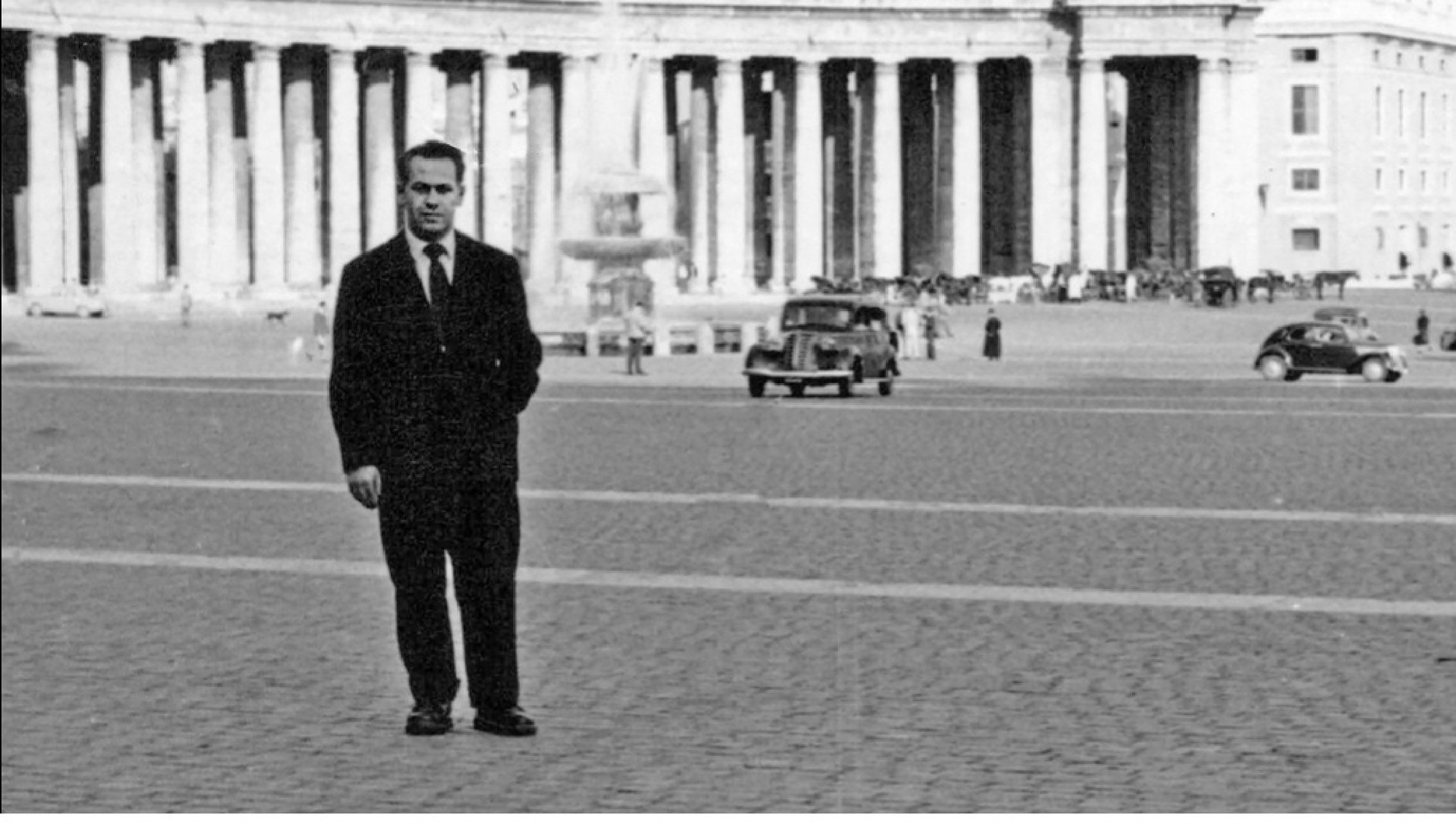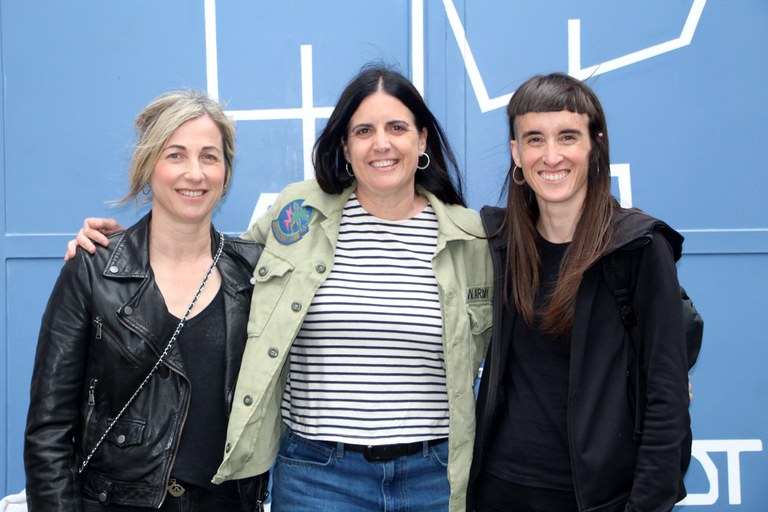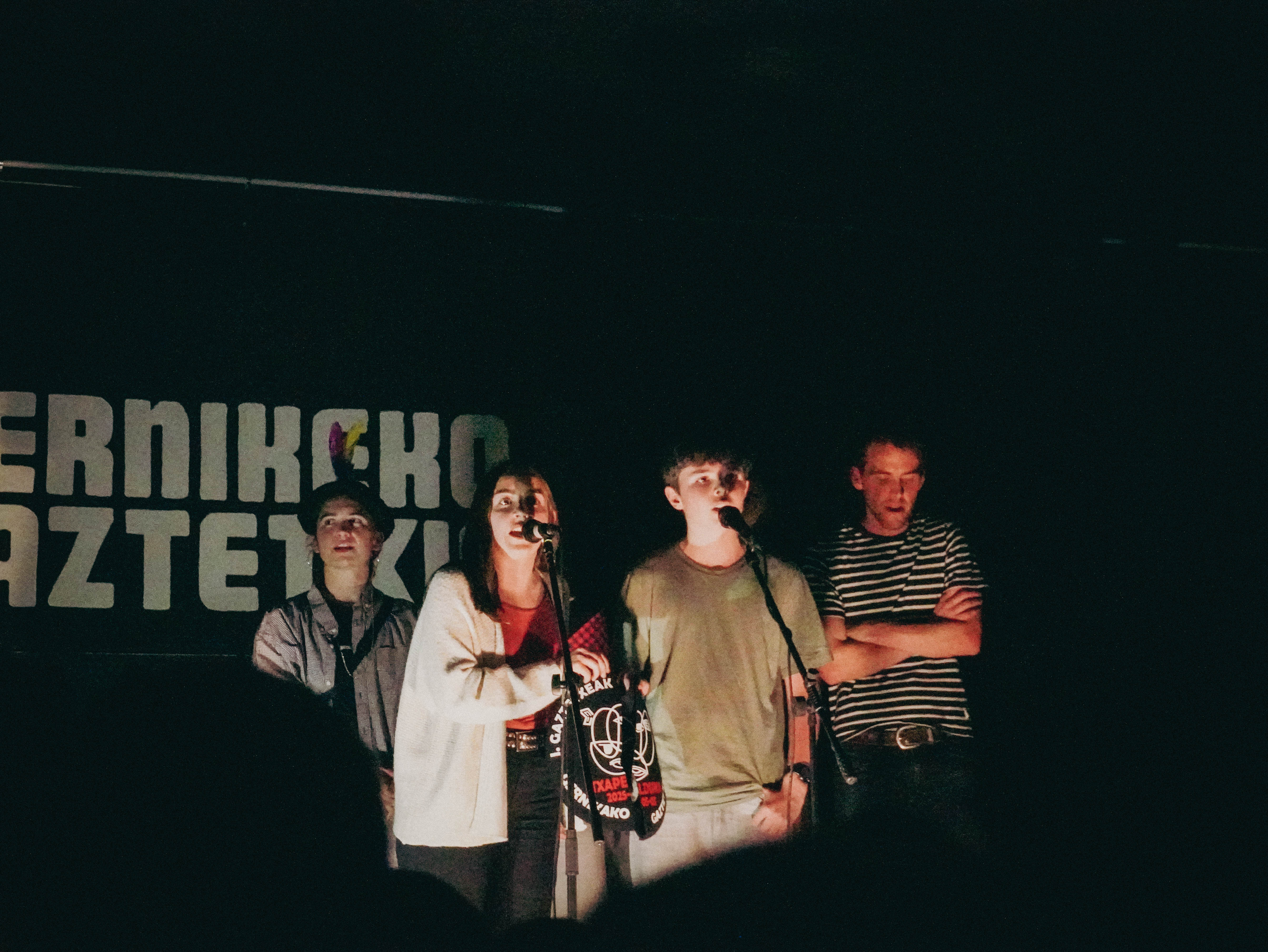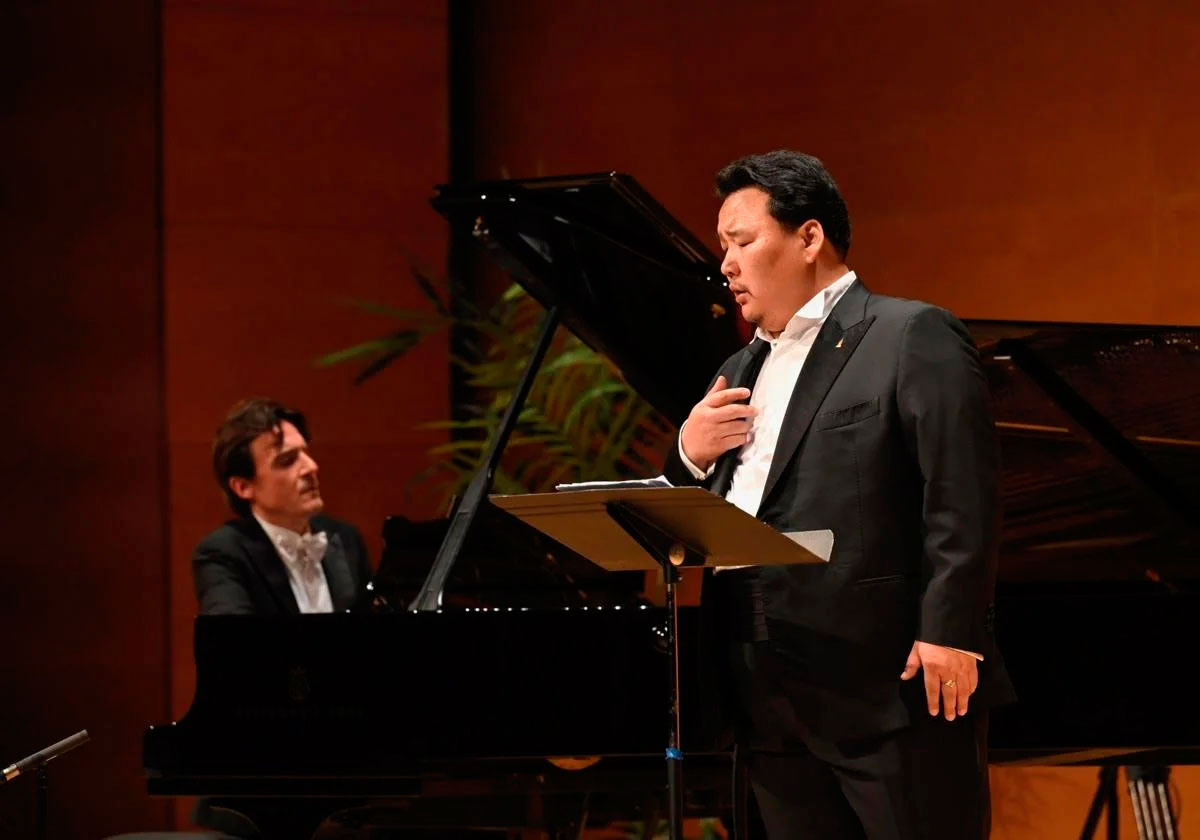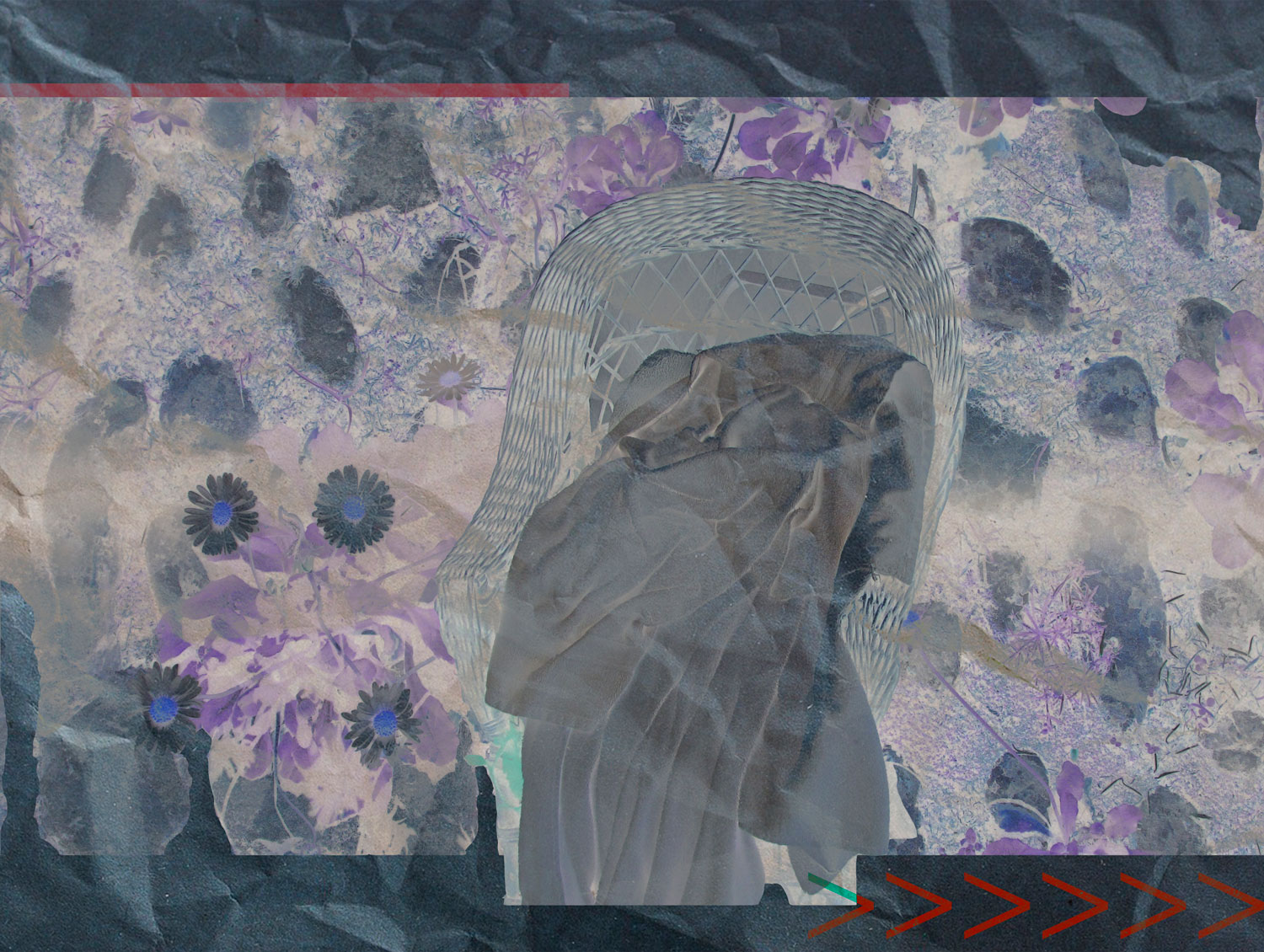"Working people can't be condemned to playing punk rock and hip-hop."
- Thinker, writer, bookseller and tabernacle. Katakrak, a member of the bookstore and the space of thought and debate in Pamplona, manages the local agenda and takes care of the reading groups. Quick, clothed, critic and sometimes caustic.

How long can a person be considered young?
I don't like those distinctions. My father tells me that when I was a kid I liked playing a lot and today too. Youth, like adolescence, is something that few people could have at the beginning of the 20th century. At the beginning of the 21st century, a lot of people think they have it, but they probably don't.
Besides playing, what did you like as a child?
The figures around me were grandparents. They made me very attractive, their friends… it seemed to me that they had knowledge, one more time before life. They were clear about what it's like to be a worker, and now, instead, there's a lot of distraction around that. They were simple, very narrative people. Today, everything has been standardized a lot. People have gone into terrible schizophrenia to be different, so that in the end all people are equal.
You are two brothers. Ziargi is younger than you and yet you say you have learned a lot from him.
Yes. I learned that you have to start working in the world as soon as possible. He has been quite clear, for example, that you have to try to be an expert on practical issues, but with a relationship with the high-level culture. He is able to change the tubing of his house and, at the same time, at the age of 14 he reads to the French surrealist poets. I've looked for a lot of combinations in my life.
The first political shock you had at the institute. Why?
I was at Biurdana Institute. At that time, I was very close to Elkarri and there was a professor with an extreme right-wing tendency. It was the time of the war in Iraq and I said that that weekend Aznar had come to Pamplona to occupy the Old Town militarily, to say to some who were murderers. And he sent soldiers to the Iraq War. The woman went crazy, started screaming, and since then I had no systematic test. So I moved to another place, to Eunate. There I was great. I fully understood what power is. In teaching, as in any other field, there are psychopaths and they have extraordinary power.
What has it taken for you to learn music?
What might be a hobby at first, today is something that has taught me more than college. In college, unfortunately, I was very disappointed. I was hoping to find passionate teachers, but that wasn't the case. I noticed that the temple of knowledge was empty.
He spent a year at the Free University of Berlin.
It was very positive, and the return to Gasteiz was very hard, even more so when I was clearer that most of the teachers I had here are not specialists in anything and give boring classes. Fortunately, on the occasion of the Bologna issue, a small mobilization was made in our faculty and I met a lot of interesting people. The atmosphere of the class was, in general, very sad, while the environment of the conservatory was quite the opposite. People working in much worse conditions, but with a terrible passion.
Have you never thought about professionalizing?
It's not good that you learn things because you think it will give you a job.
Languages, too, your passion?
Learning languages is absurd to learn. I have learned English because I had no choice but to understand some texts. Born in the place where we were born, it is logical to know Basque, Spanish and French. The English language I've always lived it further, because it's further away. I do not understand the need for people here in Navarre.
You were a professor of Euskera. What experience?
I attended three courses in the Basque Country Udaberria de Gasteiz. There I learned what it is to work and that the owners don't have to be black demons that sell us. On the other hand, I saw how many working people in the CAV are learning Euskera to have a better job and how the issue of work is not raised in a healthy way. It should be taken into account that in the CAV there is a part of the population that is very badly hit, that does not know Euskera, but nobody is thinking about anything for them.
Can that happen now in Navarre?
I do not believe that the challenges here are the same as those of the CAV. I also learned that quite well in Vitoria: The CAV and Navarre are two different things, the people of the CAV, and specifically the independence abertzales, have no regard for Navarre. They mention Navarre a lot and think they know Navarre, but that is not the case, as those who live in Donostia-San Sebastián do not know the city.
From Vitoria-Gasteiz to La Hormiga Atomico?
I was unemployed as a result of the cuts made by the Socialists. I was in touch with people from the Atomic Ant library, and then I entered the process of creating what today is Katakrak.
How did Katakrak emerge two years ago?
An analysis was carried out which has subsequently been carried out. The project showed that in Pamplona there was an interest in opening a bookstore that worked mainly the essay. At the same time, there was a need to promote a critical culture.
All of this happened in a new context: The institutions of Pamplona and Navarra were in a very serious crisis, in 2011 the military cycle of ETA ended and we believed that this would bring new opportunities, and also the M15 occurred. I participated very actively in Vitoria and many of our colleagues in Pamplona. In this respect, I believe that the people in Katakrak have made their contribution to bringing about change. A great deal of work has been done on the democratic memory, a great debate has been held on corruption, an atmosphere has been created, and many people have come together who would not otherwise have met. With all this and with the publication of several books (on the books published by Pamiela and Txalaparta for a long time, and recently on the CAN case of El corralito foral, El banquete and Joxerra Senarren), we have managed to generate a reflection on the delegitimization and representation of the rulers.
And what do you think about the people who say, "I step into politics"?
That is logical. Ulrike Meinhof makes an interesting reflection on the fact that over the past three centuries working people have been betrayed many times. Mistrust is in itself a form of protection and the people of the last 80 grandmothers have been seized. The only way to change mistrust is for people with capacity to show that things can be done differently.
But there are many rich people who say the same thing.
Some want to promote disinterest in defending their interests. They think that by encouraging a lack of interest, things are not going to change.
There has been a change here, in favour of the votes. The opportunity that history has given?
We have the opportunity, but we have to see if those in power in the Government of Navarre take advantage of it and if the people on the street force them to make changes. If you now do a good bidegorri in Pamplona or open three haurreskolas, there is no one who does not see the children of the UPN. That's changing the world, and not that, as many people now think, Joseba Asiron fulfills everything that groups tell her in favor of memory. He is the mayor of Pamplona, of all Pamplona, as is the president of all Navarros, Uxue Barkos, and many people have not understood it.
That doesn't mean they have to stay the same, for example, paying 120 UGT and CCOO salaries for free. It is the task of social movements to detect and propose what should not be done. It is not a question of everyone taking care of their chiringuite and it is enough. This is one of the reasons for the deep UPN-PSN crisis.
In addition, for the change the enormous disaffection of Navarre by the State has been very important. It must be said with great pride. In the City Council of Pamplona, pp and citizens do not have councillors, while in Pamplona they do not have councillors either. In Parliament, only two out of 50 members are from pp. And you can't say that pp and UPN are the same, even more so when Yolanda Barcina has wanted to approach pp, it's when his deep crisis begins. Negativity is a characteristic almost characteristic of the politics and social movements of Navarre. We are not like Catalonia in a pro-positive situation, saying what we are, but what we are not or what we do not want. We now have the opportunity to make a concrete and structured project and to say what we want for Navarra.
How do you value what you've seen so far?
I was very sceptical and I know that these things cannot be said in public, but at first Joseba Asiron did not seem to me to be a suitable candidate, and now, of course, I believe that his role is being very well fulfilled. Surely those of us who come from social movements always want people who look like us to represent us, and that is a very serious problem. Some say that it is a right-wing government, but no one has made a counter-proposal to its fiscal policy, for example. The same is true of many other issues. This is not a revolution. Why did those who waited for it not come to the elections as revolutionaries?
Why is Wagner so special?
I started to relate to Wagner when I was 14. It's a mine that doesn't end. If you're interested in the transformation of the 19th century world, classical music, art and revolution, your man is Wagner. It's infinite. Composer who has written some of the most beautiful melodies from our Western point of view. It has passages that almost leave you deaf and those that are barely heard.
Like the members of the Talaios cooperative, I believe that working people are entitled to the luxury of high culture and cannot condemn them to play punk rock and hip-hop. Classical music, for example, has to be in our hands because it's interesting. We have to enjoy novels, succulent meals and craft beer. We can't let our head turn into a beast by drinking just Coca-Cola and industrial beer.
Why do you love poetry so much?
Nowadays poetry is not popular, as in the twentieth century a very bad poetry has been written and published. But if you look at the history of literature, you'll see that it's the most universal genre, because it's been sung in all societies. Poetry shows how cultures have understood the world.
1986, Iruñea
Biolinean lizentziaduna da Nafarroako Goi Mailako Musika Kontserbatorioan eta Itzulpengintza eta Interpretazioan EHUn. Musika klasikoan, Euskal Herriko Gazte Orkestrako partaide izan da, bestela, Fermin Muguruzarekin kolaboratu du, besteak beste. Bi poesia liburu kaleratu ditu: Suzko lilia (2008) eta Sinplistak (2012). 2009an Ihes ederra lehen euskal irudi-eleberria sortu zuen lehengusu Alain M. Urrutiarekin. Duela gutxi Wagner auziaz argitaratu du.
“Katakrakeko liburu saltzaile jubilatu nahi nuke. Behin-behinekotasuna bukatu behar dugu, gure garaiko erronka handienetakoa da, ez soilik prekarietatearen zentzuan, baizik eta tempoari dagokionez ere. Ezin gara ibili axaleko harreman laburrak egiten etengabe, horrek ez duelako ezer uzten. Ez du ezer ekoizten. Irakurle taldeetan ikasi dut. Aldez aurretik beste testu eta ideiak irakurri eta partekatu dituzulako, eraiki dezakezu zerbait berria”
“Nafarroan orain mugimendu sozialek daukagun arrisku handienetakoa akritikoki jarraitzea da, erakundeetan aldaketarik egon izan ez balitz bezala, dimisioak eskatzen, protestaka... Lana egin behar da. Pankarta oso ongi dago, baina gauzak aldatu nahi badituzu, hitz egin alda ditzakeenarekin eta proposa iezaiozu nola egin, inoiz baino belarri gehiago baitaude erakundeetan. Ez egon denbora guztian teledemokrazia balitz bezala Twitter eta Facebooken hau bai, hau ez”
Elkarrizketa batzuk besteak baino trinkoagoak izaten dira. Bagenekien Hedoi goi mailako pentsamendu eta teoria politiko eta ekonomikoetan zer igerilari trebea, azkarra eta askotan kriptikoa den. Katakrakeko lankideek txantxetan esaten dioten bezala, hauek dira Hedoiren bi esaldi erabilienak: “Wagnerrek dioen bezala…” eta “Brechten liburu batean irakurri nuen bezala…”. Espero bezala, solasaldian hamaika pentsalariren erreferentziak egin ditu Hedoik, gai batetik bestera ziztuan jauzika. Elkarrizketa oso interesgarria, baina zaila izan dela daitort.
BRN + Auzoko eta Sain mendi + Odei + Monsieur le crepe eta Muxker
Zer: Uzta jaia.
Noiz: maiatzaren 2an.
Non: Bilborock aretoan.
---------------------------------------------------------
Ereindako haziek ura, argia eta denbora behar dute ernaltzeko. Naturak berezko ditu... [+]
Euskadi markak, eraikuntza sektoreko ekonomiaren estrategian, “industrializazioa” mantrarako hitz gisa hartu duela jakinarazi berri du Eusko Jaurlaritzak. Etxebizitza publikoaren eraikuntzan industrializaturiko prozesu eta elementuak lan guztien %65a izatea... [+]
Last week, during the blackout, seeing ourselves vulnerable, we began to investigate many people in order to understand what happened: how does the infrastructure that transports electricity work? Why is it getting old? I am fascinated by the physical phenomenon of electricity... [+]
Aurreko tertuliako galderari erantzuteko beste modu bat izan zitekeen, akaso modu inplizituago batean, bigarren solasaldi honetako izenburua. Figura literarioaz gaindi, pertsonaia zalantzan jartzeko, edo, kontrara, pertsonaiaren testuingurua ulertzeko saiakera bat. Santi... [+]
Now that everyone has become more Franciscan than the Pope, it’s worth remembering our unsurpassed classics. There was one in the 17th century, his grace was Arnaut Oienart. And since we can’t immerse ourselves in all his works, today we will praise O.ten youth in... [+]
“We rehearsed, we showed it to the boys, we were there when they needed help for the grill, but then we never danced in the square or even crossed our mind.” Oihane Auzmendi Iturbe (Legazpiia, 1977) is a dancer of the dance group Roots, but for years he did not have the... [+]
Amartuvshin Enkhbat baritonoa
Pianoan: Stefano Salvatori.
Antolatzailea: OLBE.
Zer: Verdi, Mascagni, Leoncavallo eta Giordanoren operen ariak.
Non: Bilboko Euskalduna Jauregian.
Noiz: martxoaren 29an.
Martin Martina and the Mystery of the Golden Comb
by Amancay
Gaztelañaga Batu, 2024
-----------------------------------------------------
Amancay Castañaga launches the mystery of Martín Martina and the golden comb accompanied by the illustrations of Alain Martínez... [+]
The annoying noise of the works of the neighbors has awakened me even today. I put my head on the pillow, and I tried to sleep for another twenty minutes, but there was no one to shut that drill down. I woke up and looked at the table of duties that I did at the beginning of... [+]












.jpg)
